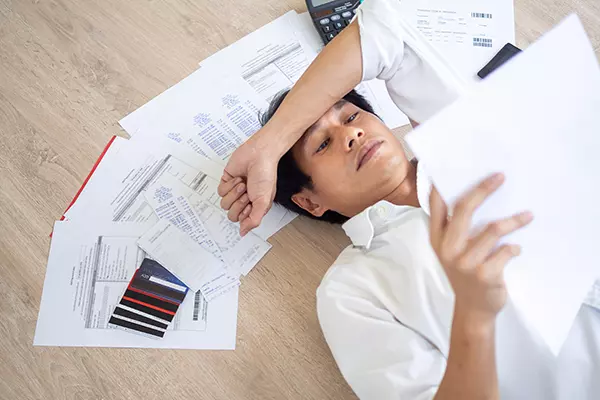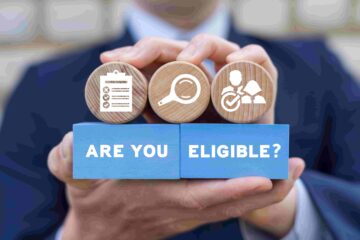How to Deal with Debt in South Africa
Learn how to deal with debt in South Africa and achieve financial freedom today!
The National Debt Review Center
How to Deal with Debt in South Africa
Debt can be a significant burden, yet you’re not alone in this. Numerous South Africans face challenges in managing their debts. Fortunately, there are actionable steps you can take to regain control of your finances and work towards becoming debt-free. Below is an outline of some essential strategies:
1. Assess the Situation.
- List all your debts, including amounts owed, interest rates, and minimum payments. This will give you a clear picture of your financial situation.
2. Create a Budget.
- Monitor your income and expenses for a month to understand where your money goes. Many budgeting apps and tools can help with this.
- Differentiate between essential expenses (rent, groceries) and non-essentials (entertainment, dining out).
3. Develop a Repayment Plan.
- There are two common debt repayment methods. The snowball method focuses on paying off the smallest debts first for a quick win, while the avalanche method tackles debts with the highest interest rates first to save money overall. Choose the approach that best suits your motivation and situation.
- Once you have a budget, identify areas to cut back and free up extra money to put towards debt repayment.
4. Explore Debt Relief Options.
- Consider a consolidation loan with a lower interest rate to simplify your repayments.
- If you’re overwhelmed, a registered debt counsellor can negotiate with creditors on your behalf and create a structured repayment plan. The National Credit Regulator (NCR) website has resources to find a legitimate counsellor [National Credit Regulator South Africa].
5. Additional Tips.
- Avoid using credit cards for unnecessary spending. Try a waiting period before larger purchases to curb impulse buying.
- Explore ways to earn extra income, like a side hustle, to accelerate debt repayment.

Frequently Asked Questions
How to deal with debt stress?
Dealing with debt stress can be tough, but there are ways to manage it. Here are some tips:
Acknowledge your feelings: It’s normal to feel overwhelmed, anxious, or ashamed. Accepting these feelings is the first step to moving forward.
Talk to someone you trust: Talking to a friend, family member, therapist, or debt counsellor can help you feel less alone and get support.
Focus on what you can control: You can’t control the past, but you can make choices about the future. Focus on creating a plan to get out of debt.
Practice relaxation techniques: Techniques like deep breathing, meditation, and yoga can help reduce stress and anxiety.
How to get out of debt when you are broke?
Getting out of debt when you’re broke requires a solid plan. Here’s what you can do:
1. Halt any new debt. Don’t use credit cards or take out loans.
2. List all your debts (amount owed, interest rate) and your income. This will help you see where your money goes.
3. Prioritize essential expenses (housing, food, utilities). See where you can cut back (eating out, entertainment) to free up money for debt payments.
4. Pay minimums on all debts but throw any extra money at the smallest debt to close it quickly. This can give you a morale boost.
5. Sell unwanted items, do a side hustle, or ask for a raise. Every bit helps.
I am in debt and have no money to pay my creditors.
Being in debt with no money to pay creditors can feel scary. Here are some steps to take:
Contact your creditors: Let them know your situation. They may offer programs like lower payments or paused interest.
Contact the National Debt Review Center (NDRC): A debt counsellor can give you free or low-cost advice and help you develop a repayment plan.
Consider debt consolidation: This could combine high-interest debts into a lower-interest loan, simplifying your payments. However, proceed with caution and avoid extending repayment terms.
How to get out of debt quickly?
Focus on the snowball method.
Negotiate with creditors: Sometimes, creditors will lower your interest rate or waive fees if you ask.
Boost your income: Look for ways to make more money, even a small raise can free up more for debt payments.
How to get out of debt on a low income?
Getting out of debt on a low income takes time and discipline.
Track your budget religiously: Every cent counts. Scrutinize every expense and see where you can cut back.
Prioritize your debt: Focus on high-interest debts first to save money on interest charges in the long run.
Consider government assistance: You may be eligible for programs that help with food, housing, or utilities, freeing up more money for debt payments.
Find free or low-cost resources: Many non-profit organizations offer financial counselling and debt management plans.
Remember, you’re not alone in this. There are many resources available to help you get out of debt and improve your financial situation.
Conclusion
Debt can feel overwhelming, but with the right approach, you can take control and achieve financial freedom. This article has provided tools and strategies specifically applicable to South Africa’s economic landscape. Remember, managing debt is a journey, not a sprint. By taking consistent steps and utilizing available resources, you can build a brighter financial future. Don’t hesitate to seek help from debt counsellors or financial advisors for personalized guidance. You’ve got this!



0 Comments